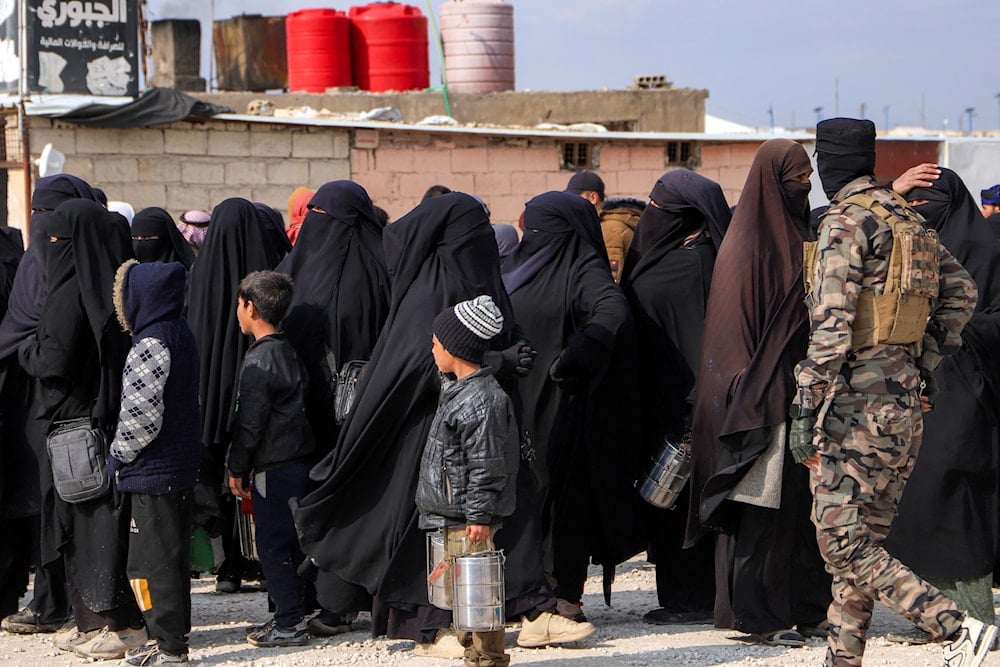SDF seeks to clear northeast Syria camps of Syrians, Iraqis in 2025
Kurdish-run camps and prisons currently hold approximately 56,000 people, many of whom are alleged or perceived to have links to the Islamic State (IS) terrorist group.
-

A fighter of the Syrian Democratic Forces (SDF) walks past women and children queueing at the al-Hol camp, at which the families of suspected Islamic State (IS) fighters are detained, in Syria's northeastern Hasakah province, on February 9, 2025 (AFP)
Syria’s semi-autonomous Kurdish administration aims to clear camps in the northeast of thousands of displaced Syrians and Iraqi refugees, including suspected relatives of Islamic State (IS) militants, by the end of the year, AFP reported, citing an official.
"The autonomous administration is working to empty the camps" of Syrians and Iraqis "in 2025... in coordination with the United Nations," Sheikhmous Ahmed, a Kurdish administration official, told AFP late Monday.
Kurdish-run camps and prisons currently hold approximately 56,000 people, many of whom are alleged or perceived to have links to the Islamic State, more than five years after the terrorist group's territorial defeat in Syria.
Kurdish authorities reported that nearly 600 Iraqis held in the al-Hol camp returned home on Sunday, while around 300 displaced Syrians were scheduled to leave the Arisha camp on Tuesday.
Al-Hol, the largest camp in northeast Syria, houses more than 40,000 detainees from 47 countries. As of 2024, the camp held over 20,000 Iraqis and 16,000 Syrians.
An Iraqi security source told AFP that approximately 12,000 Iraqis had left al-Hol since 2021, while around 17,000 remain.
Last month, the Kurdish administration announced plans to facilitate the voluntary return of residents from al-Hol and other camps to their areas of origin.
Ahmed noted that some Iraqis had already departed from al-Hol, while discussions were still ongoing regarding the return of Syrians.
The “return and exit mechanism” is being coordinated with the UN refugee agency and other organizations, given the “very large number” of people involved, he added.
No solution has yet been reached for other foreign nationals.
Ahmed described the presence of non-Iraqi and non-Syrian detainees in al-Hol as an “international issue” tied to the countries responsible for overseeing the camp and the fighters detained by the Syrian Democratic Forces (SDF).
While some nations have repatriated their citizens from al-Hol, most “have not undertaken any withdrawals,” he said.
This comes amid ongoing talks between Syria’s new authorities and the SDF regarding the group’s future, as well as clashes in the north between SDF forces and pro-Ankara factions.
Ahmed dismissed speculation that recent US aid cuts were behind the push, stating that UN-affiliated and local organizations continue to provide assistance, and the administration remains committed to delivering services in the camps.
However, Human Rights Watch has warned that the recent suspension of US aid could exacerbate the “life-threatening conditions” in northeast Syrian camps.

 3 Min Read
3 Min Read










